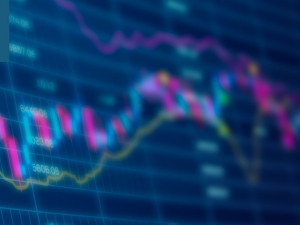
Bailey optimistic… but
Morning mid-market rates – The majors
9th March: Highlights
- Sterling correction in danger of becoming a trend
- Dollar recovery driven by positivity, not risk
- Investors awaiting Central Bank action
Recovery far from certain. Johnson’s steps crucial
While he retains concerns over certain aspects of the recovery, employment in particular, he believes that the recovery from the recession, putting aside the Pandemic which he feels is a once in a century event, will be stronger since it is a recession like no other.
In particular, household finances are stronger than in a regular recession. Unemployment is likely to remain a major issue but, again, it won’t be as much of a burden as in previous recessions.
He still suffers from a dilemma which is either a cyclical phenomenon in which the economy simply runs out of steam and needs a correction, or will it always be in reaction to a global event, such as the current pandemic or the downturn which followed the global financial crisis.
For now, Bailey is content to preside over the current recovery and sees the steps put in place by the Government as providing a degree of certainty in what has been a hotchpotch of ideas, hopes and, expectations that have had very little basis in reality.
The discovery, production and rollout of the vaccine has been the most spectacular recovery since World War Two.
Boris Johnson would like to see himself as a Churchillian figure, but he is as likely to be judged a hero as a villain as was Churchill himself.
Bailey remains positive but cautious but is convinced that the real game-changer has been the vaccine rollout and the staggering efficiency of the NHS in vaccinating close to 22 million citizens in such an incredibly short period which has allowed the Government to even consider an end to restrictions.
The pound continues to be buffeted by the newfound resilience of the U.S. dollar and fell to a low of 1.3800 yesterday.
It eventually closed at 1.3824 but is likely to remain under pressure until either Jerome Powell pulls the rug from under the recovery or next week’s FOMC meeting is both bearish and dovish.
Considering your next transfer? Log in to compare live quotes today.
Vaccine plus stimulus equals growth
In G7 terms, the U.S.is far and away the first nation to be able to claim that it is on the way to driving down its unemployment rate close to or even below pre-Covid levels.
The incredible fact is that 379k new jobs were created in February. However, that creates two significant issues: first, can the economy sustain such a major increase and even if it can, will there be a correction to the February number which calls into question the entire recovery of the jobs market?
Analysts believe that the gradual removal of lockdowns in various States is producing a gradual release of pent-up demand which is a little like the valve on a pressure cooker. Pressure continues to grow but could it be halted by the figurative turning off of the gas under then pot?
A failure of leading indicators to live up to expectations could still make next week’s FOMC meeting more dovish than expected despite comments from members over the past few weeks.
Jerome Powel won’t be too exuberant or even moderately bullish so soon, but at some point, he is going to acknowledge the significance of the Bill that was approved in the Senate last weekend even if it was in a slightly watered-down form.
There has been a severe backlash over the refusal of the senate to approve a rise in the minimum wage to fifteen dollars an hour with newspapers naming and shaming the Democrats who sided with the opposition.
While data remains positive it seems that the market is getting the message that a strong economy demands a strong currency and that is leading the dollar index higher. Yesterday, it closed at 92.38, having peaked a few pips higher.
No one in the U.S. is going to want to see a stronger dollar. Despite its inflation lowering tendencies, the Fed has price rises covered, while expectations of seeing continued export growth may not last too long.
Investor confidence remains high
How much higher will they allow inflation to rise before the fear of runway price rises gives way to talk of higher interest rates, a tapering of bond purchases and a reduction in PEPP.
The Eurozone is stuck in a tough position from which it will take a major degree of imagination and strength to extricate the economy.
In the Eurozone, employment is a difficult issue to solve. The lack of a Fiscal Union makes stimulating the market by creating schemes impossible. For example, Brussels may want to create job retention schemes or training programmes in the most affected areas, but the decision and implementation lie with national Governments.
The ECB meets this week, and it will be impossible to draw a comparison between this event and next week’s FOMC.
It will not be enough to say that the Bank is keeping an eye on the currency as it rises with gathering momentum only to collapse at the first sniff of dollar strength.
It has and always will be impossible to build monetary policy around currency strength or otherwise, since as soon as the market gets a sniff of attempts at control, it senses easy pickings.
Since the euro has regained levels at which the CB pronounced itself to be comfortable, it is unlikely that the euro will receive any more than a cursory comment from Christine Lagarde this week.
The single currency fell to a low of 1.1845 yesterday. Its lowest level since November 24th. It closed at that level but appears to be bound for further turbulence no matter the outcome of upcoming Central Bank meetings.

About Alan Hill
Alan has been involved in the FX market for more than 25 years and brings a wealth of experience to his content. His knowledge has been gained while trading through some of the most volatile periods of recent history. His commentary relies on an understanding of past events and how they will affect future market performance.”



